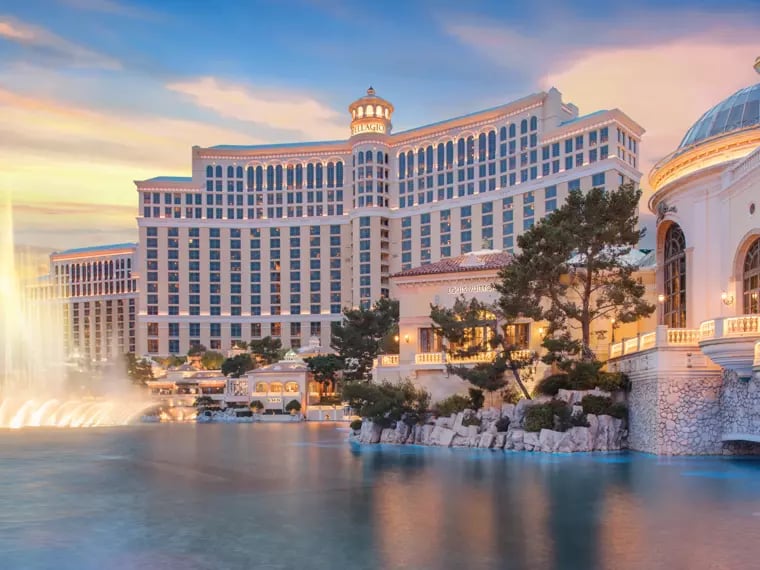MGM Resorts International (MGM +2.02%) has made a lot of transformative moves in 2017. It opened MGM National Harbor near Washington D.C., started paying a dividend for the first time, and announced a $1 billion share-buyback program.
All of this adds up to a huge turnaround for a company that almost went bankrupt in 2009 during the depths of the recession. And a couple of its recent moves were about as shrewd as they come in the gaming industry.

Image source: Getty Images.
MGM National Harbor is already paying off
I recently highlighted that the $1.2 billion MGM National Harbor was a surprise success on the East Coast gaming market: The casino resort had an annual run-rate of about $140 million in EBITDA during the first half of the year. What was amazing is that MGM's REIT company MGM Growth Properties LLC (MGP +0.00%) recently bought the real estate at National Harbor for $1.1875 billion. Rent will be about $95 million per year, 90% of which is fixed with a 2% escalator per year.
In other words, for a net cost of about $200 million, MGM Resorts built a massive resort and added about $55 million in EBITDA with the potential for more upside if the resort can grow. That's a great investment if you ask me.
Buying back shares at a discount
At the same time the sale of National Harbor's real estate was announced, MGM Resorts also launched a $1 billion share buyback program. A week later, it agreed to buy $327.5 million of stock at a 1% discount from former controlling shareholder Tracinda Corp., which will still own 8.3% of MGM's outstanding shares after the deal closes.
This buyback is on top of a dividend that currently yields 1.3% for investors. If MGM Resorts keeps making incredibly strong investments like National Harbor, it could buy back more shares or increase the dividend further, both of which would have been unthinkable just a few years ago.
MGM Resorts International is now a cash flow machine
The latest financial moves by MGM Resorts demonstrate the company's value and the high quality of its recent investment decisions, but they also show that it doesn't see itself as much of a growth company in the near future. The reason gaming companies haven't typically paid dividends is that they've used their excess cash flow to build new resorts.
But now, with Las Vegas essentially saturated, and growth markets like Macau and Singapore limiting the number of new resorts that can be built, there aren't many obvious growth opportunities left -- outside of the large but unknown opportunity that is Japan, where casino resorts were legalized late last year. If it develops that that's the only growth opportunity globally, it may be time to start viewing at MGM Resorts and the gaming industry more broadly as a cash flow investment, because growth will be hard to come by.






